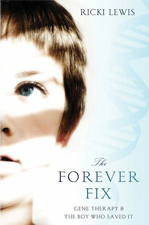Mesothelioma Designation as an "Orphan Disease"
In the United States an “orphan disease” status is assigned to a disease or disorder if it affects fewer than 200,000 Americans at any given time. The Food and Drug Administration estimates that there are 6,000 rare diseases affecting more than 25 million people. According to the National Organization for Rare Disorders (NORD), 1 out of 10 Americans has a rare disease.
Mesothelioma is diagnosed in 3,000 Americans each year. The disease shares the orphan disease distinction with other well-known diseases, including colon cancer, multiple sclerosis, AIDS, and cerebral palsy. Between 85 and 90 percent of the orphan diseases are serious or life-threatening.
Mesothelioma, a rare form of cancer typically affecting the lining of the lungs, is highly aggressive and is resistant to many standard cancer treatments making it a difficult disease to treat effectively. The prognosis for mesothelioma patients is usually grim; the average survival time varies from 4 – 18 months after diagnosis.
1983 Orphan Drug Act
In 1983 Congress passed the U.S. Orphan Drug Act offering financial incentives to help companies recover the cost of developing a drug for small patient populations. Orphan drug designation, which is intended to facilitate drug development, provides substantial potential benefits to the sponsor, including funding for certain clinical studies, study-design assistance, and several years of market exclusivity for the product upon regulatory approval.
The Office of Orphan Products. The Office of Orphan Products Development (OOPD), under the direction of the FDA, is dedicated to promoting and advancing the development of products (drugs, biologics, medical devices, and medical foods) that demonstrate promise for the diagnosis and/or treatment of rare diseases or conditions.
In addition, the office provides coordination among public and private agencies in carrying out their respective functions relating to the development of products for rare diseases or disorders. As of April 21, 2009, 339 drugs and biological products for rare diseases had been brought to market. In comparison, only 10 such designated products had been approved in the 10 years prior to the 1983 act.
Orphan Drug Grants. The OOPD also funds the Research Grants Program. The goal of the grant program is to encourage clinical development of products for use in treating rare diseases or conditions. The FY2010 budget for orphan product grants was $14,315,864.
Orphan product grants successfully foster and encourage the development of effective medical products for the treatment and cure of rare diseases. The recipients of the grants are able to focus on product development in a compressed time period with a very modest investment. OOPD grant funding is typically offered for up to three years for Phase 1 trials and up to four years for Phase 2 and 3 trials.
Orphan Drug Designation
Only one drug has been approved as an orphan drug in the treatment of mesothelioma. Pemetrexed Disodium (Alimta) was designated on February 28, 2001, with an exclusivity start date of February 4, 2004, for the treatment of malignant pleural mesothelioma. Specifically, the approved orphan indication is for treatment of patients with malignant pleural mesothelioma whose disease is either unresectable or cannot be addressed by curative surgery.
The following drugs hold the Orphan Drug designation status for the treatment of malignant mesothelioma, but have not yet been approved.
- 5,6-Dihydro-5-Azacytidine from ILEX Oncology, Inc, designated 5-11-1992
- Arenegyr from MolMed S.p.A. (Italian), designated 08-22-2008
- Aroplatin from Antigenics Incorporated, designated 09-01-1999
- Onconase from Alfacell Corporation, designated 01-25-2007
- Ss1(Dsfv)-Pe38 from National Institutes of Health Cancer Therapy Evaluation Program, designated 02-11-2002
- Vorinostat from Merck & Co., Inc., designated 03-17-2004
Coordination with European Medicines Agency (EMA)
On March 1, 2010, the U.S. FDA and the EMA announced plans to coordinate orphan drug designations through acceptance of a single annual report from sponsors of orphan drugs and biologic products designated by both the United States and the European Union. Prior to this agreement, drug sponsors had to submit separate reports.
Both agencies, as well as sponsors, will benefit from the single report. The report will contain a full set of data pertaining to an orphan drug including information on the ongoing clinical studies, a description of the investigation plan for the coming year and information on anticipated or current problems. The single annual report submission to both regulatory agencies is voluntary and will apply only to sponsors that have obtained an orphan designation status for their product from both the FDA and EMA.


